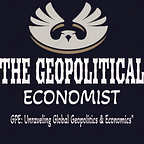Next US President: Embracing Indian Origins
Indian-American entrepreneur Vivek Ramaswamy emerges as a potential candidate for the next US President.
Today we are living in a world which shows rapidly globalizing, national boundaries are becoming less of a barrier to the rise of leaders with diverse backgrounds and international experiences.
This phenomenon is not limited to goods and services; it extends to individuals who are breaking through traditional limitations to attain leadership positions on a global stage.
An exemplary case of this trend is Vivek Ramaswamy, an Indian-American entrepreneur and presidential hopeful, whose ascent in the United States Republican Party signals a new era in global leadership dynamics.
A Cosmopolitan Shift:
The world we inhabit today is marked by its cosmopolitan nature or we can say moving toward vasudhaiva kutumbakam . A term often used to describe our globalized world, cosmopolitanism embodies the idea of a borderless society where individuals of various origins can achieve prominence and leadership positions.
An emblematic example of this phenomenon is witnessed in the realm of international politics, with individuals of diverse ethnic and cultural backgrounds taking center stage.
Just as Rishi Sunak, of Indian origin, serves as the Prime Minister of the UK, the emergence of Vivek Ramaswamy in the political landscape of the United States underscores the shift towards a truly cosmopolitan leadership ethos.
The next US President from Indian origins
The possibility of the next US President having Indian origins is becoming increasingly relevant, with figures like Ramaswamy emerging as potential leaders. If former President Donald Trump faces the high likelihood of imprisonment, Ramaswamy could become a pivotal figure within the Republican Party. Should the Democratic Party, led by Joe Biden, face defeat in the elections, Ramaswamy stands as a prominent contender for the presidency.
However, the question remains whether the American population will rally behind an individual with Indian roots who come from outside the nation. Will the people of the US exhibit the courage to embrace such a choice? The answer to this inquiry lies solely in the hands of the American citizens, shaping their preference for representation and leadership on a global stage.
The United States holds the distinction of being one of the world’s most powerful nations, excelling in terms of its economy, defense capabilities, and soft power influence. The role of the US President extends beyond domestic leadership — it resonates as a symbol of unparalleled global influence and authority. In this context, the decision lies squarely with the American populace: to either continue with the trajectory set by President Biden or to potentially elect Ramaswamy into office, especially given the anticipated legal challenges faced by Donald Trump. Notably, recent endorsement from Elon Musk, the chairman of X (formerly Twitter) and the world’s wealthiest individual, has bolstered Ramaswamy’s candidacy.
Vivek Ramaswamy’s Journey:
Born to Indian immigrants in Cincinnati, Ohio, on August 9, 1985, Vivek Ramaswamy’s trajectory from his roots to the forefront of American politics is a testament to the possibilities in today’s interconnected world. His upbringing in the United States, while maintaining a connection to his Indian heritage, has contributed to his unique perspective on global issues.
A Presidential Hopeful:
Ramaswamy’s journey has brought him to a significant juncture: a presidential hopeful in the Republican Party. Despite being a political novice, his rise in popularity within the party’s ranks is noteworthy. His candidacy signifies the growing acceptance of leaders with diverse backgrounds in a party traditionally dominated by established political figures. As he vies for the presidential nomination, Ramaswamy’s story echoes the evolving dynamics of global leadership, where an individual’s potential is not limited by their country of origin.
Leadership in a Borderless Era:
Vivek Ramaswamy’s aspirations to lead the United States exemplify a broader trend in leadership that transcends geographical borders. In a world where connectivity and communication know no boundaries, leaders like Ramaswamy are able to reach audiences far beyond their country of residence. The support he garners from influential figures, regardless of their political affiliations, underscores the recognition of his potential to lead on a global scale.
In conclusion, our world is gradually gravitating towards a sense of interconnectedness and cosmopolitanism, a Vasudhaiva Kutumbakam of sorts. However, exceptions persist, such as the situations presented by China and North Korea. Amidst this evolution, the US stands at a crossroads, holding the power to select a leader who may herald a new era of inclusivity and international collaboration. The impending decision underscores the essence of democracy — the collective voice of a nation shaping its future course.
